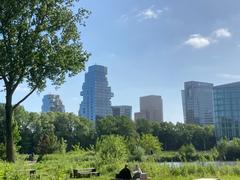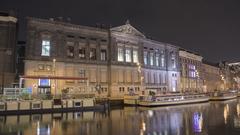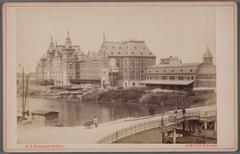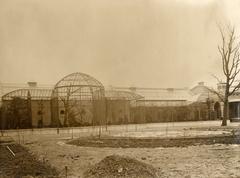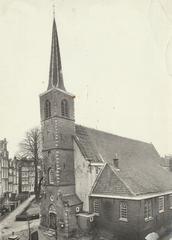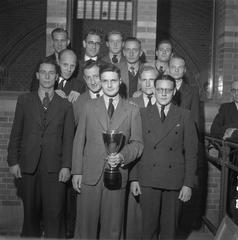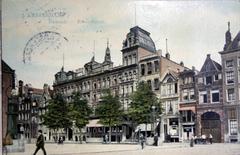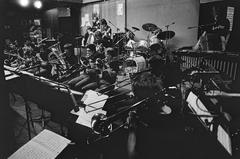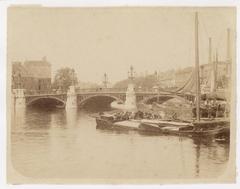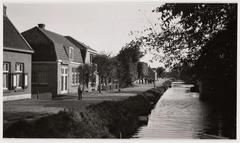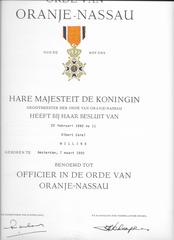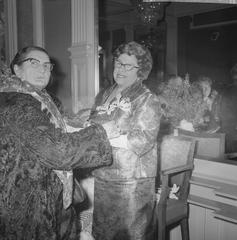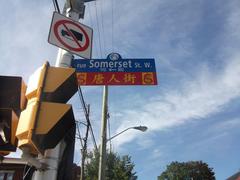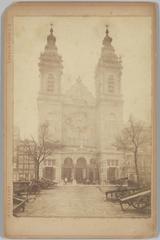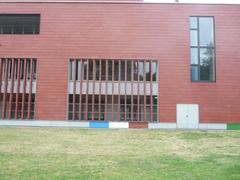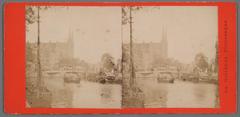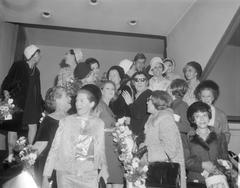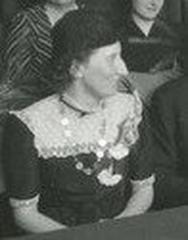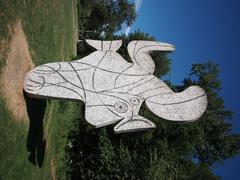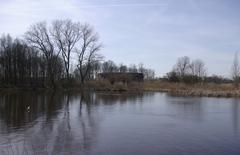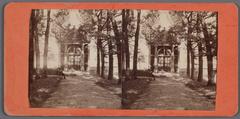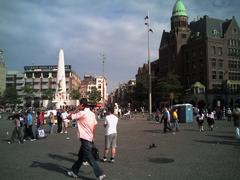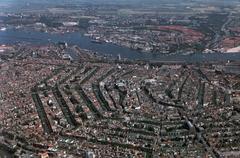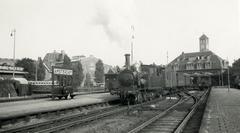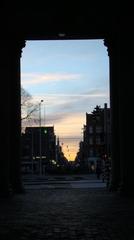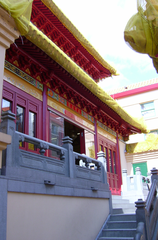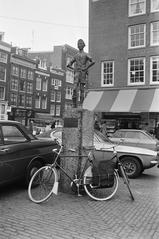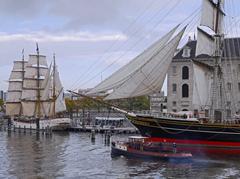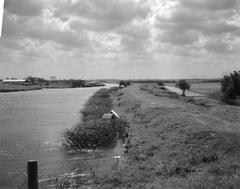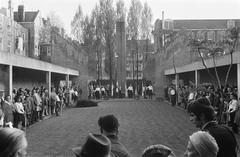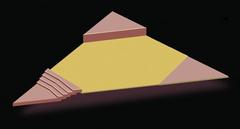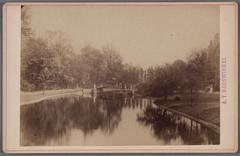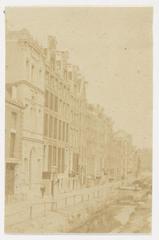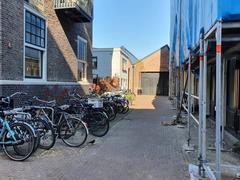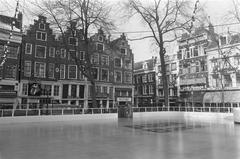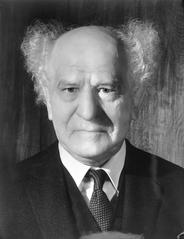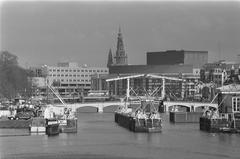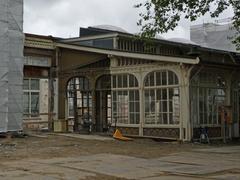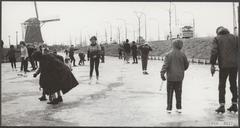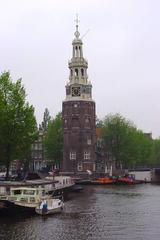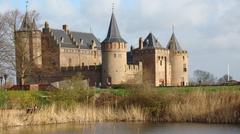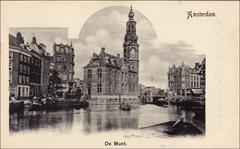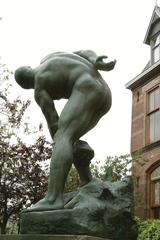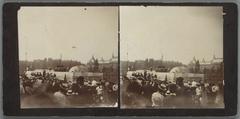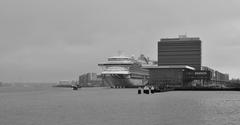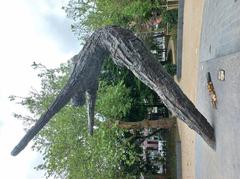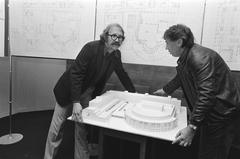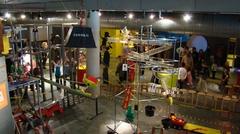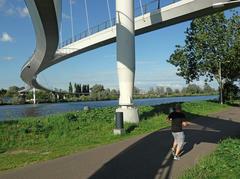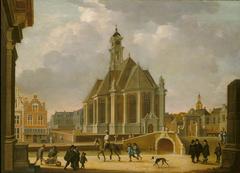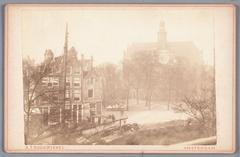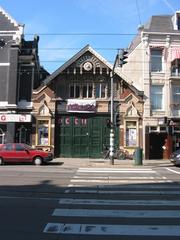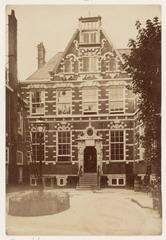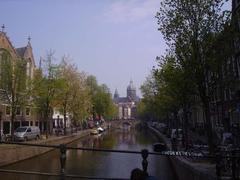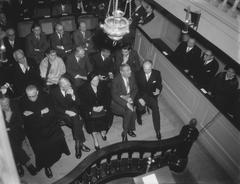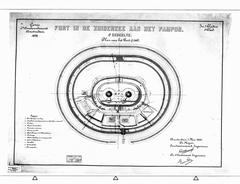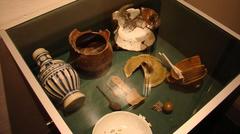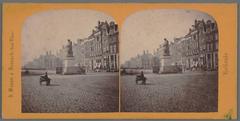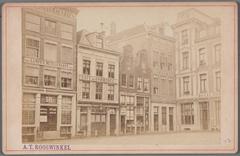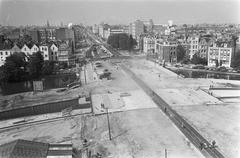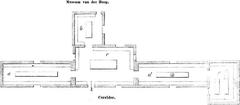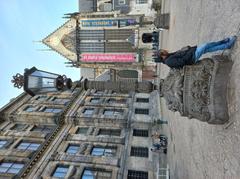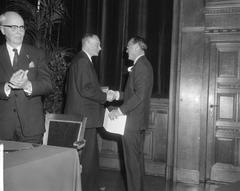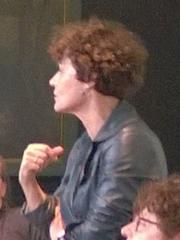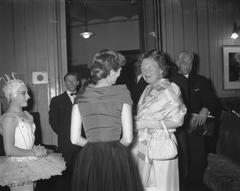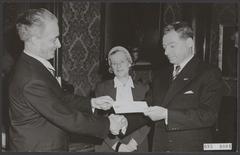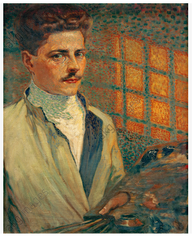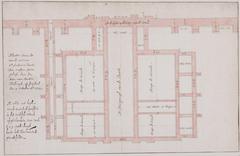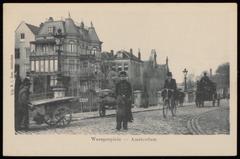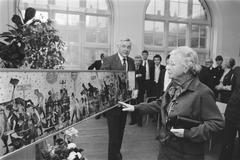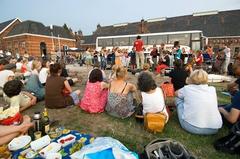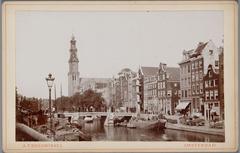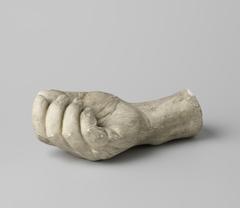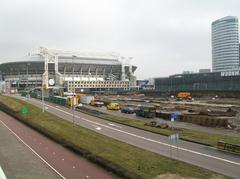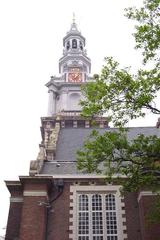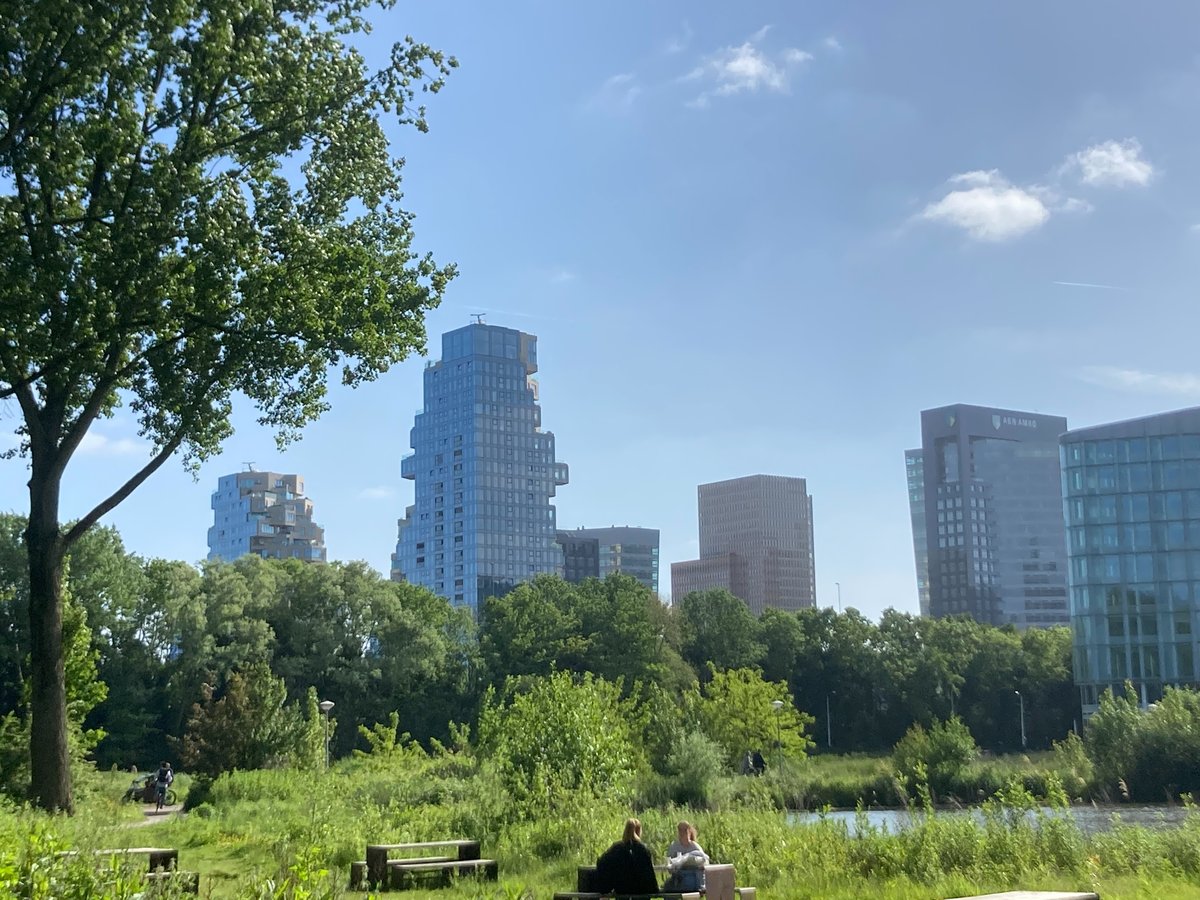
Guide to Visiting Beatrixpark Amsterdam
Date: 16/08/2024
Introduction
Nestled in the southern part of Amsterdam, Beatrixpark is a tranquil green space that beautifully marries historical charm with modern amenities. Established in 1938 and named after Queen Beatrix of the Netherlands, the park was initially designed by the acclaimed Dutch landscape architect Jakoba Mulder in a romantic English garden style (source). Over the decades, Beatrixpark has evolved to reflect the cultural and historical tapestry of Amsterdam, having undergone significant transformations during and after World War II, hosting the international horticultural exhibition Floriade in 1972, and earning its status as a municipal monument in 2005 (source). The park not only serves as a green lung for the city but also stands as a testament to Amsterdam’s commitment to preserving its historical and cultural heritage. Visitors to Beatrixpark can explore a variety of amenities, from serene pathways and picturesque landscapes to art installations and small pavilions that add a unique charm to this urban oasis (source). Whether you are a history enthusiast, a nature lover, or simply seeking a peaceful retreat, Beatrixpark offers something for everyone, making it an essential stop on any Amsterdam itinerary.
Table of Contents
- [Historical Background](#historical-backgroundhistorical-background)
- [Origins and Early Development](#origins-and-early-developmentorigins-and-early-development)
- [World War II and Its Impact](#world-war-ii-and-its-impactworld-war-ii-and-its-impact)
- [Post-War Redesign and Modernization](#post-war-redesign-and-modernizationpost-war-redesign-and-modernization)
- [Floriade Exhibition and Further Developments](#floriade-exhibition-and-further-developmentsfloriade-exhibition-and-further-developments)
- [Monumental Status and Preservation Efforts](#monumental-status-and-preservation-effortsmonumental-status-and-preservation-efforts)
- [Recent Changes and Current Layout](#recent-changes-and-current-layoutrecent-changes-and-current-layout)
- [Cultural and Historical Significance](#cultural-and-historical-significancecultural-and-historical-significance)
- [Visitor Experience and Historical Highlights](#visitor-experience-and-historical-highlightsvisitor-experience-and-historical-highlights)
- [Visitor Information](#visitor-informationvisitor-information)
- [Visiting Hours and Tickets](#visiting-hours-and-ticketsvisiting-hours-and-tickets)
- [Accessibility and Amenities](#accessibility-and-amenitiesaccessibility-and-amenities)
- [Guided Tours and Special Events](#guided-tours-and-special-eventsguided-tours-and-special-events)
- [Nearby Attractions](#nearby-attractionsnearby-attractions)
- [Photographic Spots](#photographic-spotsphotographic-spots)
- [FAQ](#faqfaq)
- [Conclusion](#conclusionconclusion)
- [Visit and Stay Up to Date](#visit-and-stay-up-to-datevisit-and-stay-up-to-date)
Historical Background
Origins and Early Development
Beatrixpark, located in the southern part of Amsterdam, was established in 1938. The park was named after Queen Beatrix of the Netherlands and designed by the renowned Dutch landscape architect Jakoba Mulder. Mulder, who also played a significant role in developing the Amsterdamse Bos, initially designed Beatrixpark in a romantic English garden style. This design featured picturesque landscapes, serene paths, and a small lake, creating a tranquil environment for visitors (source).
World War II and Its Impact
The park’s history took a dramatic turn during World War II. During the German occupation of the Netherlands, Beatrixpark, like many other public spaces, was affected by the war. The park’s layout and usage were altered to meet the needs of the time. After the war, significant architectural changes were made to the park to better serve the residents of Amsterdam. These changes included modernizing the park and altering its layout to create a more functional space for public enjoyment (source).
Post-War Redesign and Modernization
Following World War II, Beatrixpark underwent a series of redesigns to enhance its functionality and appeal. The park’s modernization efforts included the construction of new pathways, the addition of open green spaces, and the installation of small pavilions and art installations. These changes not only improved the park’s usability but also highlighted the cultural influences of the post-war period on its development (source).
Floriade Exhibition and Further Developments
In 1972, Beatrixpark hosted the Floriade, a major international horticultural exhibition. This event left a lasting impact on the park, with several small pavilions from the exhibition remaining as permanent fixtures. These pavilions add a unique charm to the park and serve as a reminder of its historical significance. Additionally, in 1993, a portion of the park’s land was taken for the construction of the RAI Congress Centre’s Parkhal, but a new piece of land was added to the park to compensate for this loss (source).
Monumental Status and Preservation Efforts
In 2005, the oldest part of Beatrixpark, which retained its original romantic English garden character, was designated as a city monument. This status provides a level of protection to the park, ensuring that its historical and cultural significance is preserved for future generations. The Vereniging Vrienden van het Beatrixpark, a local association founded in 1981, has played a crucial role in advocating for the park’s preservation and preventing unwanted intrusions and developments (source).
Recent Changes and Current Layout
In recent years, parts of the southern area of Beatrixpark have been redesigned to better meet the needs of the community. These changes have included the addition of new recreational facilities, improved pathways, and enhanced landscaping. Despite these modernizations, the park has managed to retain its historical charm and continues to serve as a beloved green space for both locals and visitors (source).
Cultural and Historical Significance
Beatrixpark stands as a testament to Amsterdam’s commitment to maintaining green spaces within the city. The park’s rich history, from its origins as a romantic English garden to its post-war modernization and its role in hosting the Floriade exhibition, reflects the cultural and historical evolution of Amsterdam. The park’s designation as a city monument and the ongoing efforts of the Vereniging Vrienden van het Beatrixpark highlight its importance as a cultural and historical landmark (source).
Visitor Experience and Historical Highlights
Visitors to Beatrixpark can explore its historical highlights, including the small pavilions from the Floriade exhibition, the serene pathways and open green spaces, and the art installations that blend harmoniously with the park’s natural surroundings. The park’s tranquil atmosphere and historical significance make it a perfect destination for those looking to escape the hustle and bustle of city life and reconnect with nature (source).
Visitor Information
Visiting Hours and Tickets
Beatrixpark is open daily from 8:00 AM to sunset. Entrance to the park is free, making it an accessible destination for all visitors.
Accessibility and Amenities
The park is wheelchair accessible, and there are several restrooms and benches throughout. Visitors can enjoy the park’s amenities, including playgrounds, picnic areas, and a café that offers refreshments.
Guided Tours and Special Events
Guided tours of Beatrixpark are available through various local organizations. Special events, such as seasonal flower displays and community gatherings, are held throughout the year. Check the park’s official website or local tourism sites for the latest information on upcoming events.
Nearby Attractions
Located near the RAI Congress Centre, Beatrixpark is conveniently situated close to other notable attractions in Amsterdam. Visitors can explore the nearby Amsterdamse Bos, the Van Gogh Museum, and the Rijksmuseum, all of which are just a short distance away.
Photographic Spots
Beatrixpark offers numerous picturesque spots perfect for photography enthusiasts. The small lake, romantic pathways, and historical pavilions provide a stunning backdrop for photos.
FAQ
What are Beatrixpark’s opening hours?
Beatrixpark is open daily from 8:00 AM to sunset.
Are there guided tours available at Beatrixpark?
Yes, guided tours are available through various local organizations. Check the park’s official website for more details.
Is there an entrance fee for Beatrixpark?
No, entrance to Beatrixpark is free.
What amenities are available at Beatrixpark?
The park offers amenities such as playgrounds, picnic areas, restrooms, and a café.
Conclusion
Beatrixpark’s historical background is a rich tapestry of cultural influences, architectural changes, and community efforts to preserve its legacy. From its early days as a romantic English garden to its modern-day status as a beloved urban oasis, the park continues to be a testament to Amsterdam’s dedication to maintaining green spaces and preserving its historical heritage. Visitors to Beatrixpark can enjoy a unique blend of history, culture, and natural beauty, making it a must-visit destination in Amsterdam (source).
Visit and Stay Up to Date
For the latest updates on Beatrixpark, including upcoming events and visitor information, follow us on social media and check our website regularly. Don’t forget to download the mobile app Audiala for an enhanced visitor experience and more travel tips.
References
- Discovering Trips. Beatrixpark Amsterdam Guide. Retrieved from source.
- Amsterdam Info. Beatrixpark. Retrieved from source.
- Vereniging Vrienden van het Beatrixpark. Historie Beatrixpark. Retrieved from source.
- Amsterdamian. Beatrixpark. Retrieved from source.
- Loving Travel. Parks in Amsterdam. Retrieved from source.
- Travellers Worldwide. Best Time to Visit Amsterdam. Retrieved from source.
- Touropia. Best Time to Visit Amsterdam. Retrieved from source.
- European Cities with Kids. Amsterdam with Kids. Retrieved from source.
